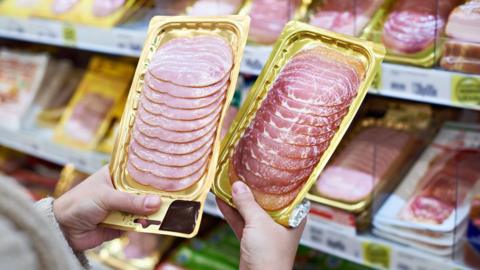Pork, beef, lamb, mutton, goat, venison and any other products made from these meats - such as sausages - from the EU have been banned. It also applies to pet food.
In addition, milk and dairy products - like butter, cheese and yoghurt - from the EU have also been prohibited.
It covers items such as sandwiches and cured meats as well as raw meats and milk "regardless of whether it is packed or packaged or whether it has been bought at duty free".
However, there are exceptions such as chicken, duck, goose and any other products made from these.
